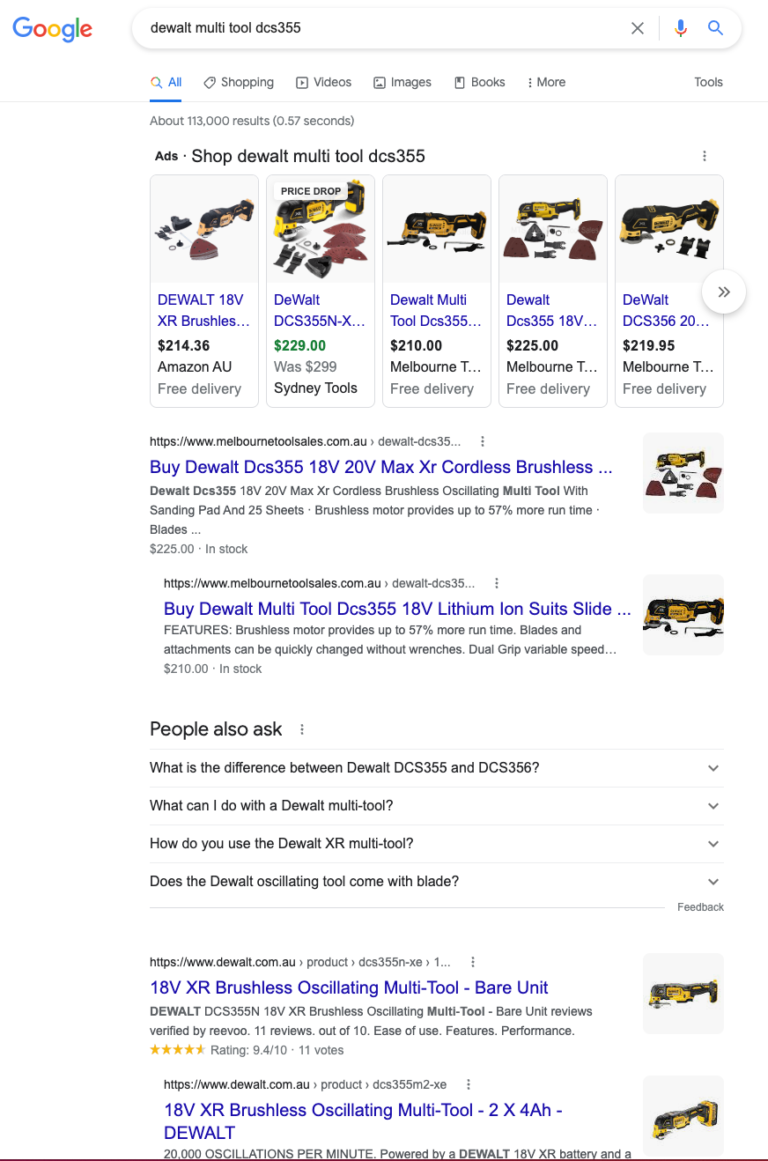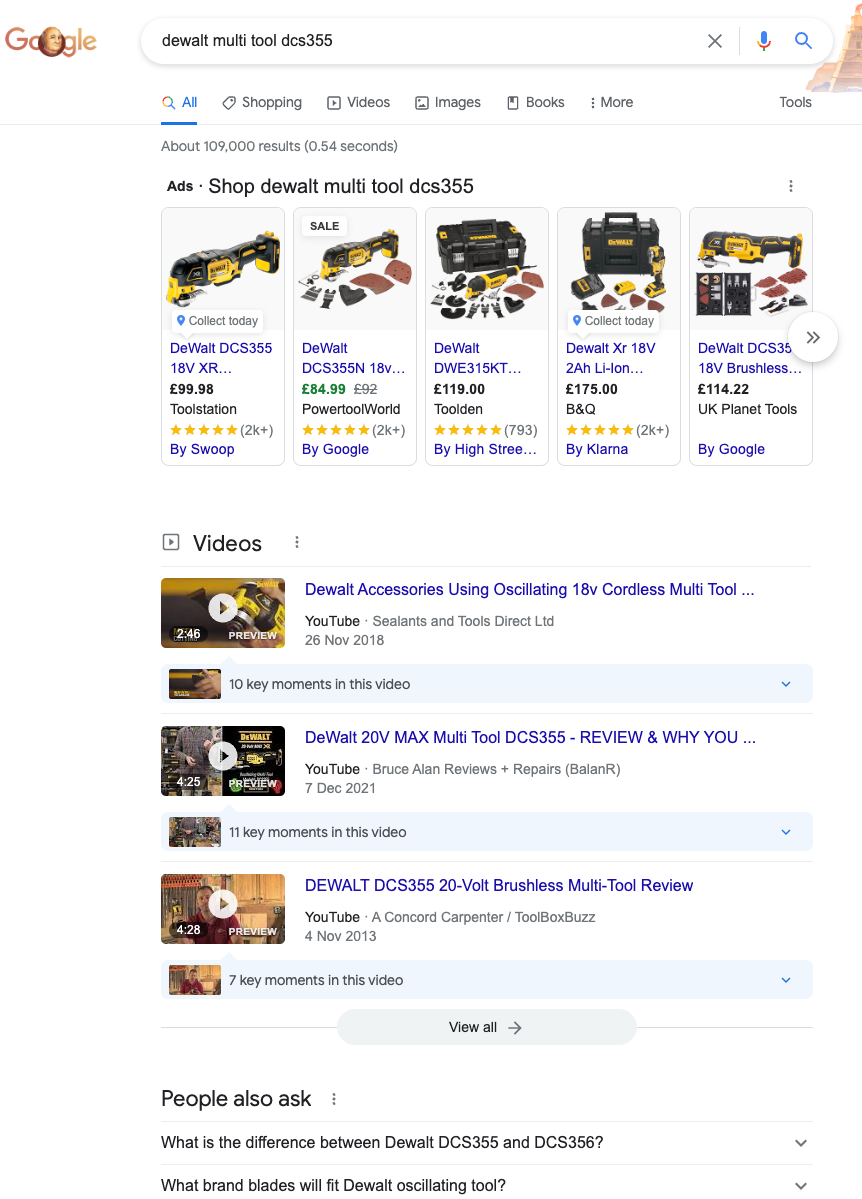We are all aware of the importance of website content.
A Forbes article from 2021 recommends marketers designate 25% to 30% of their budgets to content marketing.
While that number could change for different industries or countries, it is a good portion of the overall budget.
You can also gauge the degree of interest in content creation and content marketing by the number of articles, ads, and posts related to the content creation and marketing services you see online.
It all sounds great, but I hear that some companies are considering downsizing their budget allocations for 2023 due to less-than-expected performance.
I’d like to examine why the content may not be performing – and why it could happen in some countries, but not others.
What Is Quality Content?
All website owners believe they have good-quality content on their sites.
But when you allocate a quarter of your marketing budget, it better be great.
In Google Search Central, Google staff wrote,
“It is Google’s mission to organize the world’s information, we want to guide Google users to the highest quality content, the principle exemplified in our quality rater guidelines.
Professional publishers provide the lion’s share of quality content that benefits users, and we want to encourage their success.”
When SEO professionals hear “quality content,” they think of “E-A-T” and primarily focus on that. But Google’s John Mueller has shared a definition of content quality that encompasses E-A-T and even goes beyond that single concept.
The more popular a content topic is, the more content about that same topic exists on the web.
When you think you have a piece of quality content that is written by an industry professional, but its performance doesn’t meet your expectations, you may need to reexamine your content creation approach and strategy.
Why Does No One Find My Content?
In terms of search engine optimization (SEO), good content needs to be found by ranking well in the search results.
If your content doesn’t bring any organic traffic, perhaps it is simply not visible in the search results; it’s not ranking high for relevant search queries.
It could be that your content is too generic in terms of the information it contains.
You may think it is good content, but if there are 10 other pages with more content or different information, your page might not rank in the top 10. Maybe Google thinks people are looking for specific types of information when they use certain queries, which differs from what you offer.
If your content is different from what Google shows at the top of search results, the chance for your page to be visible in the search results decreases.
Have you checked what appears in the search results to see if your content topic fits well there?
For example, when I searched for “wooden spoon,” the search results were filled with shopping sites and images. When I searched for “tiling,” I found the definition of tiling, how-to guides, and videos in the search results.
The search results for “ceramic material” included pages with definitions and general “what is” type content.
If your brilliant article does not have the correct elements or fit the context of the searcher, you may never be seen.
Search Results Vary
Remember that search results profiles could differ from country to country.
If your content performs well in one country but not the other, that could be the reason. And, that’s why reviewing the search engine results pages (SERPs) for various queries in each target market is important.
In the example below for a specific model of Dewalt tool, multiple listings from the brand appear in the Search results in Australia, which may be driving traffic and sales.
 Screenshot from search for [dewalt multitool dcs355], Google, October 2022
Screenshot from search for [dewalt multitool dcs355], Google, October 2022After the ad block is a set of videos reviewing the tool, followed by People Also Ask. The brand page for this product is way below the fold.
In this case, reports may indicate that the U.K. product content is not performing well.
Especially in the U.K., the brand may want to create videos and ensure it is answering the questions people are asking about its products.
 Screenshot from search for [dewalt multitool dcs355], Google, October 2022
Screenshot from search for [dewalt multitool dcs355], Google, October 2022By the way, good content doesn’t rank well by itself.
Google and all major search engines use several ranking factors besides text. The overall health of the site, including page speed and user experience, and other content, such as images and videos, all impact overall performance.
Also, the page load speed could be quite different from country to country.
Ensure your site’s user experience is good in all target countries and loads quickly, providing a valuable user experience.
Who Is The Audience?
Given that you create content hoping to bring more traffic, conversions, and revenue to your site, keeping the target audience in mind is essential. If the content doesn’t resonate with your audience, it will not convert, even when it ranks at the top of the search results.
I often see website owners wanting to go after high search volume keywords or deciding to add certain content because it matches what their competitors have on their websites.
Unless you just want traffic from anyone at all, this may not be the right approach for your content creation.
In terms of the quality of the content, it needs to be highly relevant to both your business and your target audience.
Be Mindful of Different Markets
Certain content on your site performing poorly in one country, compared to other countries, could be due to varying audience interests across markets.
Research the local interests in any given market, edit the local page, or add additional information to the main content that will connect with a local audience.
Each market is different, with some consumers requiring more specifications and information before they are ready to purchase.
What Is The Content’s Goal (Conversion)?
When you allocate 25-30% of your marketing budget, the content needs to convert and reach your business goals, or your content budget may shrink next year.
The big question for underperforming content is determining if it was actually designed to bring the expected conversions.
Depending on the businesses and the websites, the various conversion metrics change.
Sales is often an ecommerce site’s number one goal, while the goal of a non-profit organization’s website is typically to increase overall awareness, leading to increased memberships or donations.
If you run a DIY shop website, you’d want your floor tooling page to appear in the search results for “floor scrapers.” If you manage an art website, you’d want the “Floor Scrapers” painting by Gustave Caillebotte page to appear in the search results.
The content on these sites should not be at all the same.
Global Mindset, Global Goals
Due to some business reasons, your company may have different goals for some target countries. If that is the case, you must consider multiple conversion points and flows when creating content.
Conclusion
As you prepare for 2023, I strongly suggest you evaluate your content for each market through the global lens I outlined above.
As budgets get tighter and every dollar counts, it will be critical to ensure existing and new content engages readers, but it must also connect with Google.
Eliminating ambiguity and presenting context within your content is critical for future success, as with the floor scraper example.
If you are only pumping out text written by experts, you may be missing significant opportunities that require video, photos, or something as simple as answering the audience’s question.
Google is radically changing the search results ecosystem to better connect with the searcher by presenting content options that match the intent of the query, presented by websites that load fast and offer the user a great experience.
More resources:
- How Do I Structure A Global Site With Country-Specific Content?
- International Content Marketing: How to Create a Global Strategy
- Content Marketing: The Ultimate Beginner’s Guide to What Works
Featured Image: ESB Professional/Shutterstock





